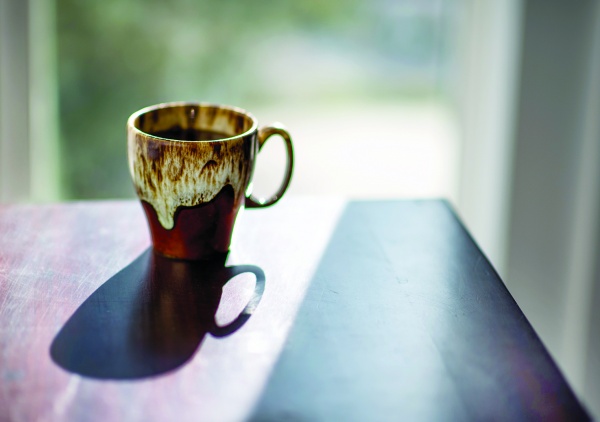Grampa drank his coffee black. I had to add several spoons full of sugar and a splash of milk to mine. I was 13 and I understood in a childlike way that having a cup of coffee wasn’t about quenching a thirst: It was a connection between Grampa and me, sitting in silence, taking long, deep breaths to savor the rich aroma.
Gramma and Grampa had lived in a big, old farmhouse in the country and Gramma made the kind of breakfast spreads so common in those rural settings of the mid-1900s. I can still smell the swirling combinations of fried eggs, bacon, toast and coffee, and can see her table (covered on one end by magazine clippings) and the glazed brown design of the earthenware on which she served our food.
After Gramma died, Grampa moved into town and made his home in a tiny little house just a few blocks from my family. I often walked over to listen to “Prairie Home Companion” with him, or read his books and ask him questions. What I really loved was the occasional Saturday morning visit, when Grampa managed to bring back the familiar smell of Gramma’s breakfast.
Gone was the big dining table; we sat instead at a table not much bigger than a TV tray. Still … I savored it, feeling grown up, drinking coffee with Grampa. Folger’s. Not from the big green tin labeled “decaf,” but the red one, which Grampa called “leaded.” He would read from the newspaper and make a whistling sound with every “s” word (just like the gopher in “Winnie the Pooh”), adding whimsy to every headline for my enjoyment.
And that’s how my love affair with coffee began – in a snug little home with a whiskery gentle man wearing a flannel shirt.
I still like my coffee sweet, often with hazelnut or caramel, but I’ve grown to think beyond the cup. I’ve visited plantations in Guatemala and seen the hands that grow the beans, and that has given me cause for pause.
Gonzaga students are taking that pause, too, to see the connection between our java habits and communities around the globe. They’re also looking at how a simple coffee date can help them relate with one another in more authentic ways.
Grampa would be proud. He’d sit right down with this Gonzaga Magazine and find some “s” words to whistle while seeing just what this place is about. I hope you’ll do the same. (Gonzaga Magazine online)
By Kate Vanskike, editor
Gonzaga Magazine
